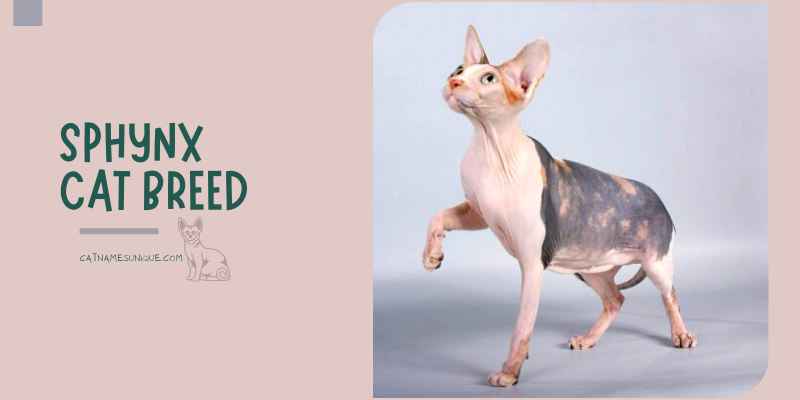There are legends about the unique character and beauty of the Sphynx cat . These creatures are completely devoted to man, extremely loving and very affectionate. They are intelligent, sociable, do not like loneliness, easily get along with any pets, completely devoid of aggression. Sphynx know how to restrain their emotions, do not harbor resentment and never take revenge.
Sphynx cats are touchingly caring fathers who take care of their babies, with no less zeal than a mother. If there are children in your family, you can be calm about their health and well-being. Sphynx’s are very good nannies. They communicate with children almost on an equal footing – somersaults, chasing each other, one might say tirelessly, taking away toys from each other, falling asleep together. Such qualities make these animals ideal pets for home keeping.
Sphynx kittens are small, delicate and demanding children. They are very human-like. They have tenacious paws, with long fingers like small graceful hands. They are big naughty, very mobile, playful. They like to sleep under a blanket, laying their muzzle on a pillow. They require a lot of attention and feel the mood of their owner well.
Sphynx Cat History and Origin
Even though the particular origin of Sphynx cats is not yet known, it is believed that these kittens come from South America. Sphynx cats are considered to be an extremely rare genetic breeding, out of a mutant hairless breeding gene. Research was done in 1966 in Canada when a hairless kitten was born. They said that they started immediate breeding of hairless cats, but if a hairless cat is bred with a Sphynx, the result is not always a Sphynx kitten.
Sphynx Cat Interesting Characteristics
Sphynx cats are hairless in physical appearance, but they may not be totally hairless because, their skin has a texture that resembles very closely to Chamois leather. Since they have a very thin coat to retain the heat in their bodies, Sphynx cats usually cuddle around themselves, or other pets, when the mercury drops. A person may feel the kittens to be quite warm to touch because of their lack of coat.
The whiskers and eyebrows of these kittens may be present, and they may be either whole or broken, and can even be totally absent. The skin of these cats is characteristically the color of their bodies and the color patterns of solid, point, tortie; tabby and tan are found in these kittens. They have wedge shaped heads and even though they may look very thin, they have sturdy and heavy bodies. They have a characteristic round abdomen which in their case is known as the ‘Sphynx pot belly’.
Sphynx Cat Care
Sphynx cats demand special care. This is because due to the lack of hair, they don’t shed their coats or groom themselves; they are not considered to be maintenance free. The body oils which are normally absorbed in other breeds are not absorbed in Sphynx cats and as a result, regular cleaning in the form of bathing is necessary for the cats. However, one bath a week is considered sufficient for Sphynx cats.
Care is needed to remove the extra ear wax, because the Sphynx cats have more wax as compared to other domestic cats, because Sphynx cats are devoid of hair even in the ear. This makes them prone to build up impurities like dirt, skin oil and ear wax quicker than any other cat breed.
These creatures are very fond of comfort and warmth, are not afraid of water, are unpretentious in food, and do not resist cleaning their eyes and ears. They love to purr sweetly, sitting on your lap or hugging your shoulders. They really like it when after bathing they take care of their claws. They are very sensitive, and even touchy, when talking with them you can not raise your voice, much less punish. They may be offended, start refusing food. In general, they behave like ordinary little children.
Health Issues of Sphynx Cats
Even though they are recognized by the cat associations as a robust and healthy breed, the lack of hair may cause severe health issues in the Sphynx kittens particularly in the first few weeks of life. For example, many Sphynx kittens are seen to develop respiratory infections in the early phase of their life. Moreover, when they grow older, they have an increased susceptibility to develop hypertrophic cardiomyopathy which leads to the increased size of the heart and early deaths in this breed.
Reputable breeders do not send Sphynx kittens go to a new home, before they are of at least 12 weeks of age, because coping in new environments makes these kittens prone to develop infections quickly.
If you are determined to buy a Sphynx kitten, then it is best to buy a baby from 3 months old and older. At this age, he already has all the necessary vaccinations and documents. Provided that you buy through a club or nursery. Then you won’t have any worries. Since such kittens are already accustomed to the toilet and the scratching post, they are smart, socially adapted, healthy, mobile and ready to give you their love! You will receive all advice on maintenance, feeding and care, a veterinary passport, a pedigree and a contract of sale signed by both parties.
If you don’t have a Sphynx yet, be sure to get it. He will give you a sea of love, tenderness, will become a faithful and devoted friend. And you, in turn, will be absolutely happy when this touching creature hugs your neck with its paws and rumbles with gratitude in your arms.



